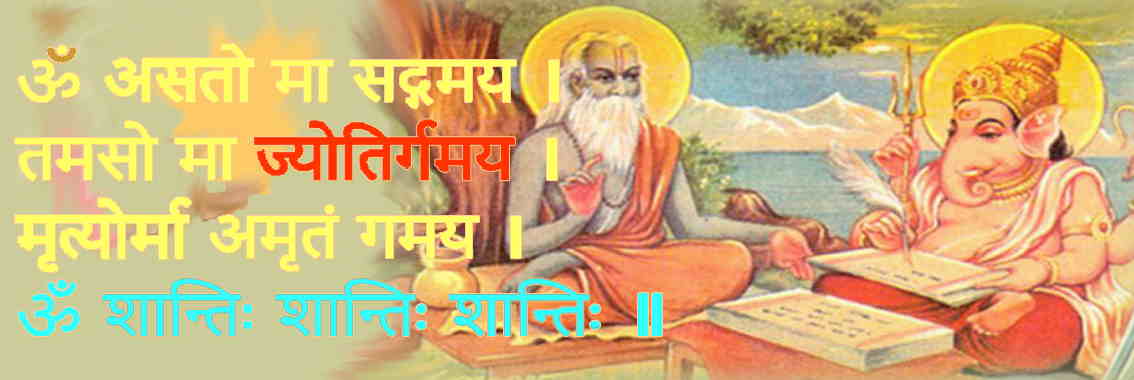`व्यां वेदव्यासाय नमः
vyāṁ vedavyāsāya namaḥ

July 21st is Guru Purnima giving us the opportunity to express gratitude to our Guru, mentors and teachers who are illumining our path. Five years ago, on this same occasion I started writing about the importance of observing śamādi-ṣaṭka-sampattiḥ or the six-fold inner wealth which forms the part “sādhana catuṣṭaya” or the four-fold qualification given in Tattva Bodha that facilitates spiritual learning. Every year I explore one quality in-depth for my development as my offering on this day. This year I want to explore uparati/uparama from the studies of texts and my understanding of it.
Uparati
Uparati from Monier Williams literally means “cessation, quietism, stopping worldly action, the prefix “upa” negating the meaning of the word rati from the root raṁ that is synonymous with enjoyment and pleasure. The name Rati thus is appropriate for the consort of the Vedic God of love Kama. Uparati then is the cessation of the needless worldly activities to maintain the equanimity and restraint gained from the qualities of śama and dama – mind and sense control. The state of Uparati assumes that seeker has knowledge and spirit of renunciation.
Here, I want to remind myself of the metaphor of a chariot (representing our body) from Kaṭhopaniṣad (1.3.3-11) used to describe the relationship between the senses, mind, intellect and the Self. The reigns (mind) should be tightly held by the charioteer (intellect) to reach the destination otherwise the Self (passenger) can run amok pulled by the five horses (senses) that dwell on what life throws in its way. Uparati helps us stay on course by making the right choices.
Exploring the meanings of Uparati from scriptures
Shankaracharya describes Uparati in Tattva Bodha (which is a beginner text in the path of Advaita) as “सर्वधर्मानुष्ठानमेव sarvadharmānuṣṭhānameva”. – the strict observance of one’s own Dharma.
In the traditional Vedic sense, there are five kinds of karma or Vedic rituals
- Nitya karma are rituals which have to be performed on a daily basis – like prayer, bathing, veneration of ancestors, study or recitation of scriptures, service to others
- Naimittika karma are special rituals which have to be performed on special occasions – birth, death and marriage.
- Kāmya karma are rituals performed for the purpose of attaining prosperity, wealth, children or fame.
- Prāyaścitta karma are rituals or remedial measures performed to reduce the effect of past activities.
- Niṣiddha karma are forbidden and when performed result in the harm of others stealing, killing and indulging in all vices.
Of these five types of karmās, the first two were considered spiritually uplifting and the latter three lead to spiritual stagnation or retrogradation. It was generally recommended to keen students to make room for the first two types of activities which are meant for spiritual growth and the gradual reduction of the latter three activities.
Later the same author, in the classical advanced scripture Vivekacūḍāmaṇi describes Uparati as withdrawal where the mind stops responding to external objects. “The best Uparati or self-withdrawal is when the mind-function ceases to act by means of external objects”.
बाह्यानालम्बनं वृत्तेरेषोपरतिरुत्तमा ॥ २३ ॥
bāhyānālambanaṃ vṛttereṣoparatiruttamā || 23 ||
This meaning may be the close to the concept of pratyāhāra of Patañjali sūtra (verse 2.54). Hariharananda in his commentary explains that this involves indifference to external objects and living in the world of thought. The task here is to convert dispassion gained from the spirit of renunciation into indifference. This meaning of Uparati is more applicable for a disciplined student to cease being enamoured by the world and create space for contemplation.
Finally, for an advanced seeker, Ādi Śaṅkarācārya gives the meaning of Uparati in Sarva Vedānta Sāra as entering into the Saṃnyāsa Āśrama or taking a monastic lifestyle. He eloquently argues in 56 verses (152 -208) that the motives and means for path of karma and jñāna are different and seeks the renunciation of “vihita karma -strict religious Vedic rituals” for a qualified person seeking liberation to enable them to focus on contemplation and assimilation of knowledge.
Uparati in current Life
Uparati is the act of reducing extroverted-ness to be able to focus on the final puruṣārtha of moksha – liberation. Even if one is not interested in that goal, reducing extroverted-ness can be beneficial for better focus on our development goals and outcomes. We are victims to a plethora of objects these days both living and non-living devices that distract us and that has been further compounded by the introduction of artificial intelligence ( AI) which is employed to find what we like to enable us to receive more of that.
While Śaṅkarācārya called for a “hard stop” on karma activities – especially the Vedic rituals to find more space for contemplative studies and thinking, these days this concept is hardly relevant as there are few that follow the karma kāṇḍa – path of religious rituals. Perhaps cultivating a feeling of contentment and inner renunciation is sufficient rather than taking to the robes. Svāmi Paramārthānanda of Arsha Vidya explains that mere external renunciation without feeling it internally is dangerous for the society. Sri Krishna in verse 3.6 of Bhagavad gītā calls such a person as a hypocrite “Those who restrain the external organs of action, while continuing to dwell on sense objects in the mind, certainly delude themselves and are to be called hypocrites”
कर्मेन्द्रियाणि संयम्य य आस्ते मनसा स्मरन् |
इन्द्रियार्थान्विमूढात्मा मिथ्याचार: स उच्यते ||3.6||
karmendriyāṇi sanyamya ya āste manasā smaran
indriyārthān vimūḍhātmā mithyāchāraḥ sa uchyate
Svāmi Paramārthānanda has suggested that the varṇa āśrama – going through the four stages of life (from brahmacharya-grhasta-vānaprastha-saṃnyāsa ) is more conducive as it provides opportunity of gradual reduction of responsibilities and hence our attraction to the external world. However, I find that these days the stages of varṇa āśrama are increasingly blurred as people are marrying later, becoming parents much later in life and also seeking opportunities to remarry till end of life leaving less opportunity for inner renunciation.
Path to Uparati
Svāmi Paramārthānanda recommends the study of Bhagavad gītā for all without consciously thinking about one’s path – being in karma or jñāna to improve awareness and to make conscious choices after gaining knowledge.
The preliminary step in reminding ourselves whether we are ready for Uparati is the proper understanding of karma yoga. The following for steps are recommended for a seeker while being in every-day life
- Reduce the qualities called āsuriṁ saṁpat given in Chapter 16 of Bhagavad Gītā – those that increase aggression and coveting -viz. dambha – ostentatiousness and hypocrisy; darpa – arrogance; abhimānaḥ – Self-conceit, excessive self-worth and identity; krodha – anger; pāruṣhyam – harshness and ajñānam – ignorance. The Patañjali Yoga sūtra recommends aparigraha – non-grasping of material things for being a true yogi.
- Increase the 26 qualities of devi saṁpat given in the same chapter 16 for maintaining purity, self-restraint, keeping on the path of knowledge
- Trusting oneself to a higher force, mentioned as niyama (things to do) Īśvarapraṇidhāna in the Patañjali yoga sūtra
- Cultivating an attitude of prasāda buddhi- of gratitude and acceptance of what comes our way
It is only true inner renunciation that makes way for wisdom in the being while the fruit of spiritual wisdom leads to Uparati, cessation of fascination for things external.
References
- Svāmi Paramārthānanda’s teachings on Tattva Bodha, Bhagavad Gītā , Kaṭhopaniṣad, Viveka Cūḍāmaṇī, and Sarva Vedānta Siddantha Sāra Sangrah
- Yoga Philosophy of Patañjali – by Swami Hariharananda Aranya
ॐ तत् सत्

